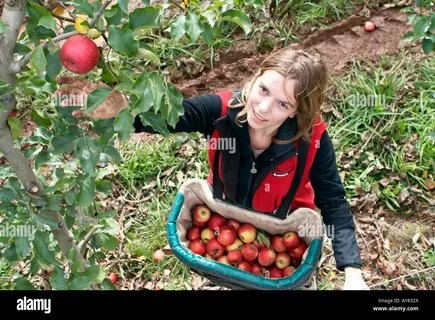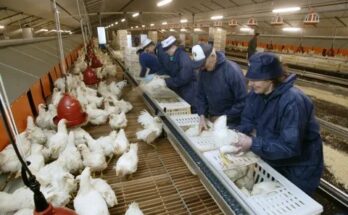Ireland Fruit Picking Jobs
Ireland’s lush green landscapes and temperate climate make it an ideal location for agriculture, including fruit cultivation. While the country is globally renowned for its dairy and beef industries, its fruit-growing sector, though smaller, plays a vital role in local economies and seasonal employment. From the strawberry fields of County Wexford to the apple orchards of County Armagh, fruit picking jobs offer a unique blend of physical work, cultural exchange, and the chance to explore Ireland’s countryside. This guide delves into the opportunities, challenges, and practicalities of fruit picking in Ireland, providing insights for locals, students, and international workers alike.
The Role of Fruit Picking in Ireland’s Economy
- Agricultural Contribution:
- Ireland’s fruit industry focuses on soft fruits (strawberries, raspberries) and orchard fruits (apples, plums). The sector contributes approximately €50 million annually to the economy.
- Key regions include County Wexford (strawberries), County Tipperary (apples), and County Dublin (berries).
- Seasonal Labor Demand:
- Over 5,000 seasonal workers are employed annually, with peaks during summer harvests (May–September).
- Labor shortages have intensified post-Brexit and post-pandemic, as many workers previously came from Eastern Europe.
- Export and Local Markets:
- While most produce is consumed domestically, Ireland exports apples and berries to the UK and EU.
- “Pick-your-own” farms attract tourists and locals, boosting rural tourism.
Types of Fruit and Harvest Seasons
1. Soft Fruits
- Strawberries: The most popular crop, harvested June–August. Major farms in Wexford and Cork.
- Raspberries & Blackberries: July–September, often grown in polytunnels to extend seasons.
- Currants and Gooseberries: Niche crops, primarily in smallholdings.
2. Orchard Fruits
- Apples: Harvested September–October. Armagh (Northern Ireland) is famed for its Bramley apples, while Tipperary and Kilkenny have commercial orchards.
- Plums & Pears: Smaller-scale production, August–September.
3. Emerging Crops
- Blueberries: Gaining traction in peat-rich soils of the Midlands.
- Exotics: Polytunnel-grown figs and grapes in experimental farms.
Who Works in Ireland’s Fruit Farms?
- Local Students: University and school students often take summer jobs for extra income.
- International Seasonal Workers:
- EU Nationals: Poles, Lithuanians, and Romanians form a significant portion.
- Non-EU Workers: Require employment permits; fewer due to visa hurdles.
- Backpackers and Travelers: Working holidaymakers under Ireland’s Working Holiday Authorisation (available to citizens of Argentina, Chile, etc.).
How to Secure a Fruit Picking Job
1. Job Search Strategies
- Online Portals:
- Jobs.ie, AgriRecruit, and local Facebook groups.
- Teagasc (Agriculture and Food Development Authority) lists seasonal roles.
- Direct Farm Contact: Many small farms advertise via signs or word-of-mouth.
2. Visa and Work Permits
- EU Citizens: Free movement under EU rights; no permit needed.
- Non-EU Citizens:
- General Employment Permit: For roles paying ≥€30,000 (rare in agriculture).
- Critical Skills Permit: For specialized roles (unlikely for picking).
- Seasonal Work Visa: Currently, Ireland lacks a dedicated scheme, complicating non-EU hiring.
3. Key Employers
- Kildare Berries (County Kildare).
- Ballymaguire Foods (County Waterford).
- Armagh Orchards (Northern Ireland).
Working Conditions and Pay
- Wages:
- Hourly Rate: €11.30–€12.70 (minimum wage).
- Piece-Rate: Common for berries; earnings can reach €15–€20/hour for fast pickers.
- Accommodation:
- Some farms provide basic housing (€30–€50/week deducted from wages).
- Rural areas may lack public transport, necessitating bicycles or carpooling.
- Hours:
- 6–8 hours/day, 5–6 days/week, weather-dependent.
Challenges and Considerations
- Physical Demands: Bending, lifting, and repetitive motions can strain the body.
- Weather Dependency: Rain delays harvests; sun exposure requires precautions.
- Housing Quality: Basic shared accommodations may lack amenities.
- Brexit Impact: Reduced EU worker mobility increased reliance on local labor.
Benefits of Fruit Picking in Ireland
- Cultural Exchange: Work alongside Irish locals and internationals.
- Explore Ireland: Rural locations like the Ring of Kerry or Cliffs of Moher are often nearby.
- Skill Development: Time management, teamwork, and agricultural knowledge.
- Pathways to Residency: Rare, but experienced workers might transition to farm management roles.
Future of the Industry
- Automation: Berry-picking robots and drone monitoring are in trial phases.
- Sustainability Initiatives: Organic farming and reduced pesticide use.
- Policy Changes: Advocates push for a Seasonal Visa Scheme to address labor gaps.
- Climate Adaptation: Crop diversification to handle unpredictable weather.
Ireland Fruit Picking Jobs
Fruit picking in Ireland is more than a job—it’s an immersion into the country’s agrarian heritage and a chance to contribute to its food sovereignty. While challenges like physical demands and visa barriers exist, the rewards of fresh air, fair pay, and camaraderie are undeniable. Whether you’re a student saving for travels, a local seeking summer work, or an adventurer craving rural life, Ireland’s orchards and fields await.
Pick. Learn. Grow.
FAQ Section
- Do I need experience to pick fruit in Ireland?
No—farms provide on-the-job training. Physical stamina is key. - Can I work in Ireland as a non-EU citizen?
Yes, but securing a permit is challenging. Focus on roles eligible for the General Employment Permit. - What should I wear for fruit picking?
Waterproof boots, layers for changeable weather, and gloves. - Are there age restrictions?
Workers must be 18+; some farms hire teens with parental consent. - How do I handle taxes?
Employers deduct PAYE (Pay As You Earn). Non-residents may need a PPS number.



